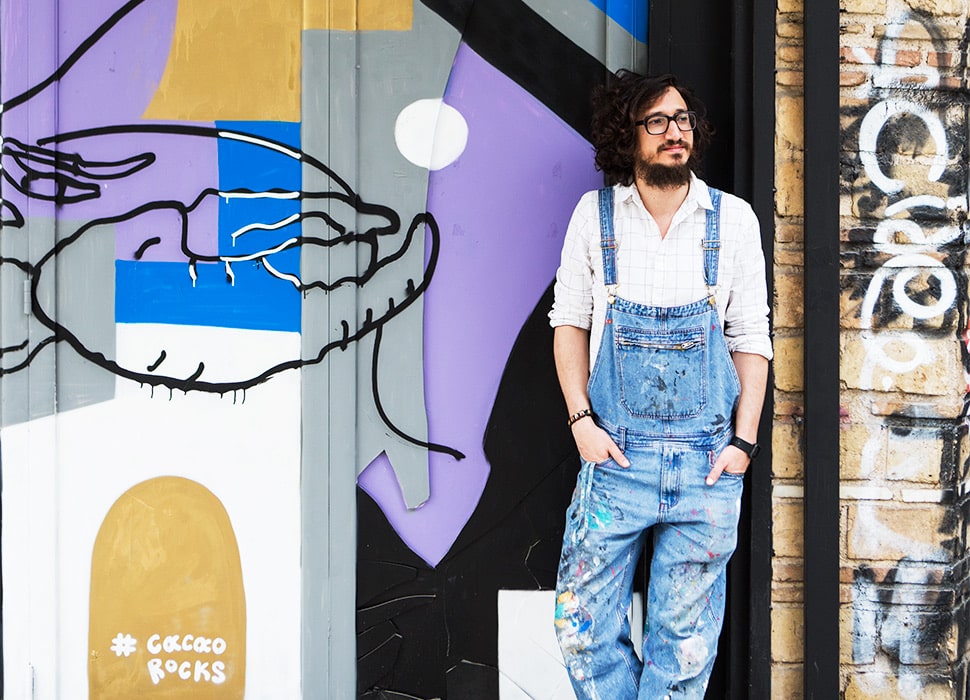The back streets of Monastiraki, Athens’ street-art hub, are a lot to take in. There’s art everywhere – on crumbling walls, wonky lampposts and shuttered businesses. Colours pop. Paint drips. Messages ranging from the inane to the profane leap out at you. It’s a mind-bending assault on the senses.
In the middle of it, sketching a lobster on a smashed-up shopfront, is a man in paint-splattered dungarees. “We’re trying to find a new identity for Athens,” says Cacao Rocks, of the art scene that’s flourished here since the financial crisis of 2008. “When you think of Athens and Greece, you think of ancient art. What this country needs is to a find a different identity and create something new.”
Cacao Rocks spraying it like he means it
Cacao – he prefers not to use his real name – has been creating art for the past two decades, since he stole his artist father’s paints aged 12, and set about tagging Athens with peace signs and ‘save the planet’ messages. It’s been in the aftermath of Greece’s economic crash that his witty slogans and abstract designs have really taken over the city, however. Now you can spot his ‘Cacao Rocks’ tag in the shadow of the Acropolis in touristy Plaka or on the hipster-lined streets of up-and-coming Exarchia, and here in edgy, vibrant Monastiraki.
Cacao Rocks' works are often suffused with irony
“The last time I tagged as Cacao Rocks was probably about three years ago,” he says. The fact is, everyone here can spot a Cacao Rocks a mile away. The same goes for the man himself. “He is the best artist!” shouts a local sipping coffee in our vicinity.
I suggest he might not have such a fan club had it not been for the slowdown that left so many canvases – old warehouses, defunct businesses and empty homes – for him and his peers to work on. “The crisis didn’t help in the sense that we didn’t have any money to even buy spraypaint,” Cacao explains. “But it was the despair we felt – that, ‘Well, what do I do now?’ that encouraged artists here to find more creative ways to survive.”




